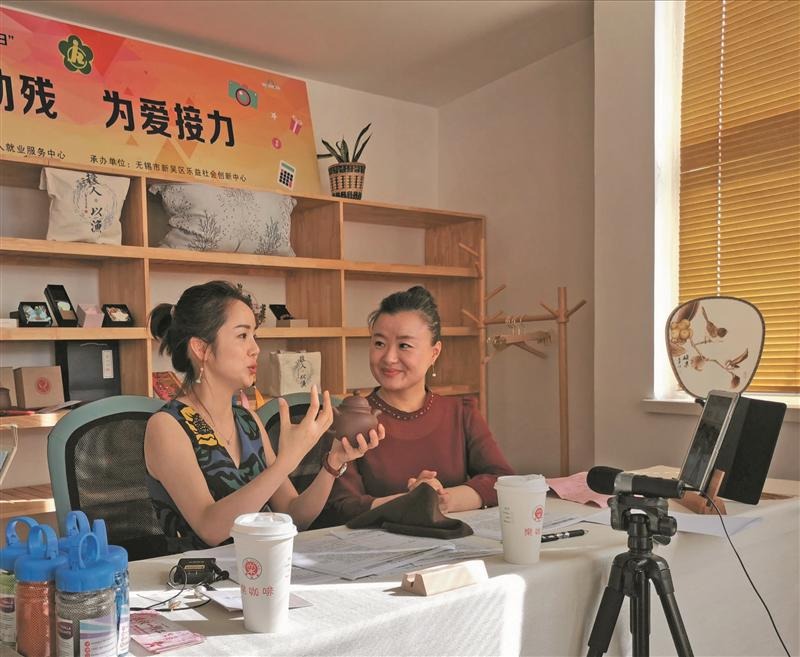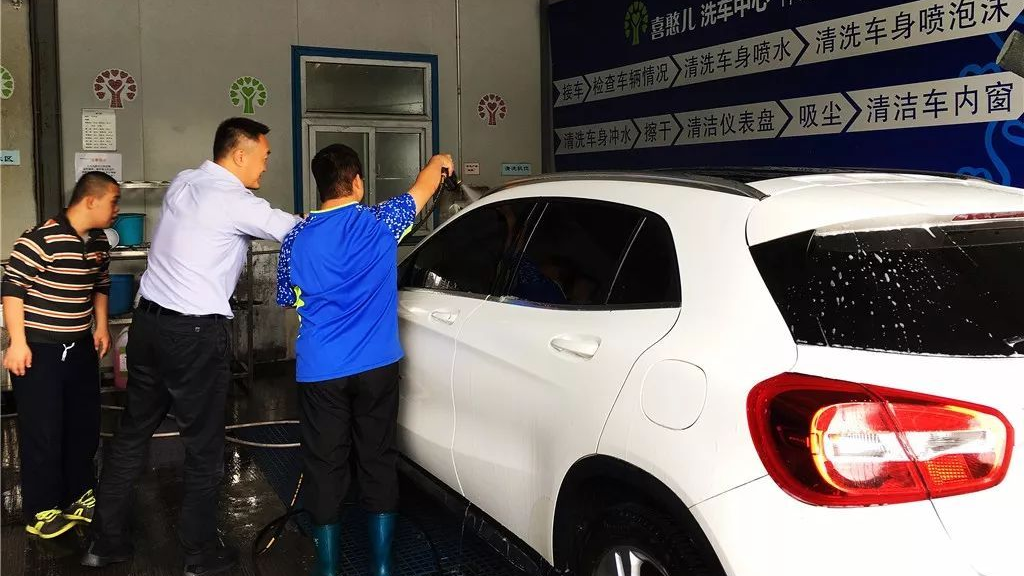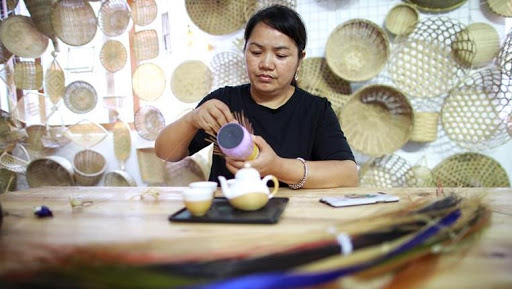China had helped 2.55 million physically challenged women out of poverty by the end of 2019, a senior official with the China Disabled Persons' Federation said on Monday.
As of the end of 2019, over 10.5 million disabled women had received living or healthcare allowances, said Lyu Shiming, vice chairman of the federation, at a symposium.
Of the 5.9 million working-age women with disabilities in the country, about 1.95 million have received vocational training and 2.54 million have landed a job, according to Lyu.
China's State Council ratified the "Outline of the Work for Persons with Disabilities" in 2006 for improving the status of persons with disabilities, providing assistance in terms of living, employment, health and education.
To further help people with disabilities find an independent position in the society, the nation leverages taxation and laws to push enterprises to hire disabled people based on specific needs. Grants are provided to those big companies who have openings for disabled women, and a security payment is required by local authorities if companies cannot make the hiring per a regulated portion.

Livestreaming of handmade teapots by women with disabilities in Wuxi. /Xinhua
Livestreaming of handmade teapots by women with disabilities in Wuxi. /Xinhua
Moreover, training sessions, webinars and vocational competitions are frequently held with the assistance of public sector, enterprises and NGOs to enhance disabled people's mental health and vocational skills.
"The training and competitions are tailor-made for different groups of disabled people. We don't want the extensive kind of assistance, which is a waste of social resources. We'd like a more practical, efficient and customized mechanism of person-to-person help for those who are in need," said Wang Ning, director of China Disabled Persons' Federation Employment Service and Administration Center.
"Since 2010, we've established a database covering almost every aspect of employment status of persons with disabilities. The data is categorized by region, and updated by us on a daily basis. We have data of employment statistics, industry updates, facilities, services and activities in the system, which is very helpful in policy-making and framework design," said Wang.
When it comes to specific assistance measures, latest technology is employed for developing smart devices, digital training as well as rehabilitation assistance.

A car wash for the mentally challenged. /Xinhua
A car wash for the mentally challenged. /Xinhua
Beside physically disabled people, mentally challenged people are supported by the community as well. Given their limitation in doing certain jobs requiring interpersonal communication and behavioral control, they are offered job opportunities like gardening and cleaning.
"Car wash is a proper job for most of the mentally challenged people as clients do not require delicate services and the salary is good enough to make a living," said Cao Jun, father of a mentally challenged boy and founder of a car wash chain in south China's Shenzhen. The car wash only hires such people and provides them professional car washing skills along with mental treatment.
"We tailor-make many courses to teach them emotions management, daily skills, logistics and accounting. We also offer treatment and rehabilitation services. I often worry about how my boy would live alone in this world if I die one day. That's why I need to teach them such skills. I'll keep doing it till I die."

A woman with disability makes handicrafts. /Xinhua
A woman with disability makes handicrafts. /Xinhua
Furthermore, women with disabilities usually have an edge over their male counterparts when it comes to fine work, such as making handicrafts, rendering beauty services, online store operations and accounting jobs.
In Gansu Province, half of the 229,000 people with disabilities in poverty are women. They did not get trapped in traditional high-consumption-low-output labor work thanks to the new poverty reduction measures. By utilizing online platforms, the local government offered these women various training programs, ranging from livestreaming to store opening. Their handicrafts retailed online satisfy a high demand, and they can get high hourly rates. When the businesses grew, they lifted themselves out of poverty.
More women, though disabled, hope their voices can be heard in the Chinese society. They are facing more adversities as gender equality and equal payment issues are particularly severe among this group.
According to a national survey, women with disabilities are paid 50 yuan less for an hour of their work than their male counterparts, while 24.7 percent of them experience domestic violence in rural areas. Therefore, community services and tailor-made employment programs for women are key to lifting them out of poverty. More importantly, mental empowerment and education are imperative to getting rid of their difficulties.